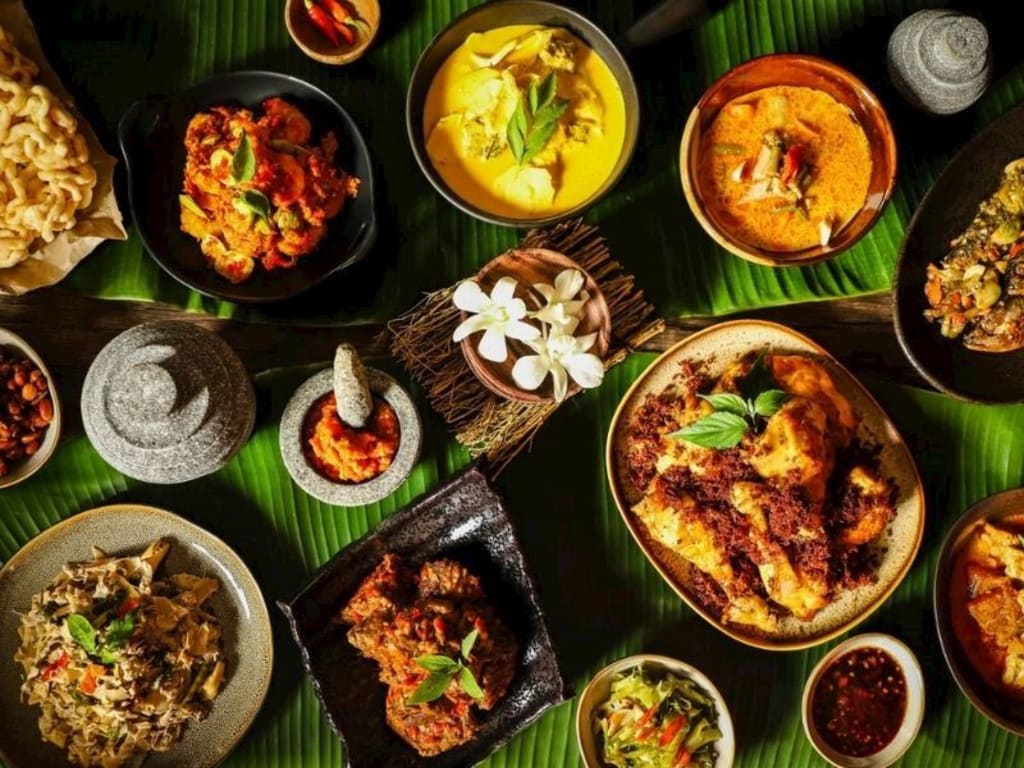A Taste of Culture: The Role of Food in Celebrations, Rituals, and Everyday Life
As someone who likes to eat and cook, I talked about the effects of environmental factors on food in this article. I hope you will like it

Food is not just a source of sustenance; it is an essential part of cultural identity and tradition. Different regions of the world have their own unique food traditions, ingredients, and cooking techniques. Food is often an important part of religious and cultural rituals and celebrations, and it can be a way for people to express their identity and values. In this essay, we will explore the cultural significance of food and its preparation in greater detail.
Regional cuisines are an important aspect of food culture. Italy, for example, is known for its emphasis on fresh, simple ingredients like tomatoes, olive oil, and pasta. These ingredients are used in a variety of ways to create a wide range of dishes, from hearty stews to light salads. The French, on the other hand, are known for their use of rich, buttery sauces and their love of cheese and wine. French cuisine is considered one of the most sophisticated in the world and has had a profound influence on culinary traditions around the globe.
In Japan, food is seen as an art form, and the emphasis is on the natural flavors of the ingredients. The Japanese use simple cooking techniques like grilling, steaming, and simmering to bring out the natural flavors of the ingredients. Sushi, one of Japan's most famous dishes, is a perfect example of this approach. It consists of small portions of rice, seasoned with vinegar and topped with fresh fish or other seafood. The rice and fish are the stars of the dish, and the minimalist presentation allows their natural flavors to shine.
Food is also an important part of a person's cultural identity. Many people who immigrate to a new country continue to prepare and enjoy the foods of their homeland as a way of staying connected to their roots. Food can be a way for people to express their identity and values. For example, someone who follows a vegan diet may do so for ethical or environmental reasons, and their food choices reflect those values.
Food is often an important part of religious and cultural rituals and celebrations. Certain foods may be associated with specific events or times of year. For example, in many cultures, food plays a central role in weddings, funerals, and religious holidays. The Jewish holiday of Passover, for example, is celebrated with a traditional Seder meal that includes matzo, bitter herbs, and other symbolic foods. In Mexico, the Day of the Dead is celebrated with a variety of foods and drinks that are meant to honor and remember loved ones who have passed away.
Fusion cuisine is another way that food cultures blend and evolve. Fusion cuisine combines elements from different culinary traditions to create new and unique dishes. For example, Korean-Mexican fusion cuisine combines Korean flavors like bulgogi and kimchi with Mexican ingredients like tortillas and guacamole. This blend of flavors and techniques can create exciting and unexpected taste experiences that reflect the evolving nature of food culture.
Food tourism is also becoming increasingly popular, with many people traveling specifically to experience the food of different regions and cultures. Food tours can help promote cultural exchange and appreciation for different culinary traditions. For example, food tours of Italy may include visits to local markets, cheese factories, and vineyards, and opportunities to sample regional specialties like pizza margherita, risotto alla milanese, and gelato. These experiences can deepen our appreciation for the art and culture of food, as well as inspire us to experiment with new ingredients and techniques in our own kitchens.
In conclusion, food is much more than just a source of sustenance; it is an essential part of cultural identity and tradition. Different regions of the world have their own unique food traditions, ingredients, and cooking techniques. Food is often an important part of religious and cultural rituals and celebrations,
About the Creator
Morgan White
I started making new decisions about my life, and one of them was to write something and show it to people. That's why I started writing here. I hope you all like my stories...
Enjoyed the story? Support the Creator.
Subscribe for free to receive all their stories in your feed. You could also pledge your support or give them a one-off tip, letting them know you appreciate their work.





Comments
There are no comments for this story
Be the first to respond and start the conversation.